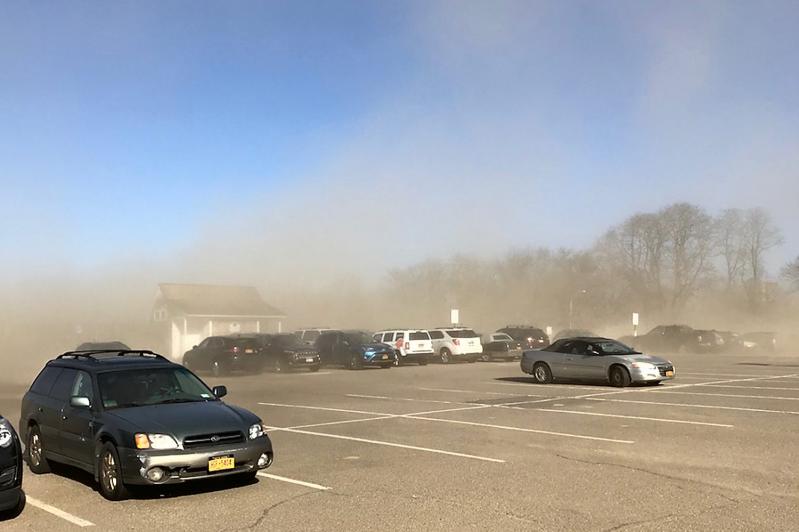In the first meeting after three of its members were easily re-elected, the East Hampton Town Board voted unanimously last Thursday to amend the town’s zoning code to require that soil on agricultural land be protected from wind erosion by the planting of an overwinter cover crop.
The move follows last winter’s conditions in Amagansett, when fine dust blowing off the dry fields north of the hamlet’s Main Street covered the commercial core and made its way indoors through the tiniest of openings. The absence of a cover crop was blamed.
Soil “must be reasonably protected from wind erosion” between Dec. 1 and March 1, according to the resolution. Should planting and maintaining a cover crop not be possible, the law offers other options: leaving harvested crops in place, applying straw, hay, or another covering, applying a nontoxic tackifier, a chemical adhesive used to keep soil, mulch, or seeds in place during wind or storm conditions, and erosion-preventing tilling methods.
In January, residents crowded the Amagansett Firehouse for the hamlet’s citizens advisory committee, several calling the situation a public health emergency. Students at the Amagansett School were kept indoors during recess, at least one business, citing threats to its employees’ health, closed temporarily, and others reported damage to equipment.
Climate change was pointed to as the reason why cover crops had not been planted: Heavier rainfall in the Northeast left wet soil conditions, hindered the fall harvest, and threw off farmers’ schedules, disrupting the establishment of cover crops.
In January the board, after consulting with farmers and county officials, enacted a mitigation plan that included placing straw atop the barren fields and installing snow fence to help keep it in place. The action largely eliminated the swirling particulates.
A public hearing on cover crop legislation in June saw farmers angrily push back against proposed legislation that included jail time as a potential punishment for failing to plant a cover crop. “These penalties were tacked on as standard penalties,” Councilman Jeff Bragman said at the time, acknowledging that they were “extreme and unwarranted.” The adopted resolution includes a fine of not more than $1,500, but not jail time.
Last Thursday Mr. Bragman called the code amendment “a common-sense proposal that I think is good for the farming community and residents.”
Also at the meeting, the board scheduled a public hearing for next Thursday to consider funding water quality improvement projects using the community preservation fund, 20 percent of which can be directed to such efforts. The move followed an Oct. 15 presentation to the board by the town’s water quality technical advisory committee, which recommended funding two projects in Springs and two others in Montauk.
One is a sanitary system upgrade at the Springs School, for which $227,273 would be provided. School officials believe they can reduce nitrogen content by 92 percent, Chris Clapp of the committee told the board last month. A sanitary system at the nearby Springs General Store should be awarded $23,991, the committee had told the board. Both upgrades are aimed at reducing nitrogen entering Accabonac Harbor.
Another sanitary system upgrade, this one at the West Lake Inn in Montauk, should be supported with a $120,045 grant, the committee recommended. And Concerned Citizens of Montauk should be granted the $25,211 it requested in order to remove nitrogen and phosphorous from Fort Pond via bioextraction using floating mats to which vegetation is affixed. Fort Pond has been fouled with blooms of cyanobacteria, or blue-green algae, in recent years.




